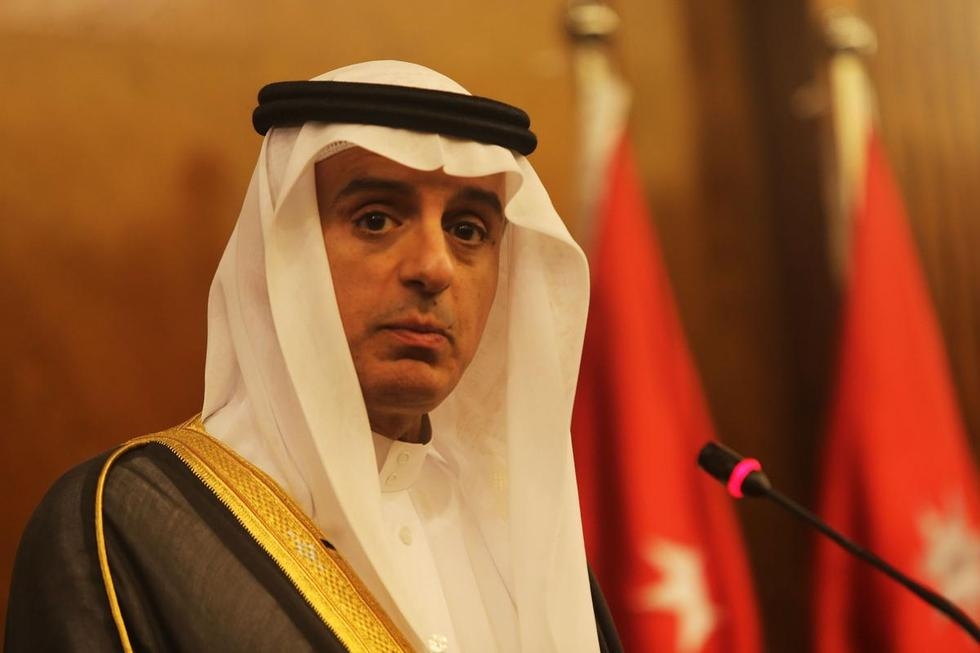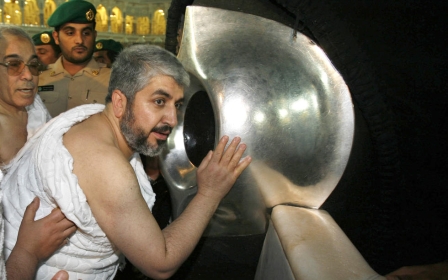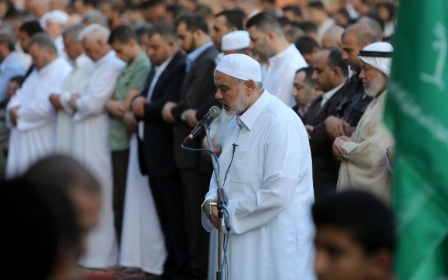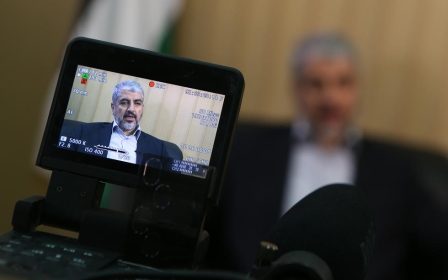Saudi downplays recent Hamas visit to kingdom

Saudi Arabia is playing down the significance of a visit by Hamas leaders, saying it was only a religious pilgrimage and Riyadh's position on the Palestinian movement remains the same.
"There was no (political) visit by Hamas to the kingdom," Foreign Minister Adel al-Jubeir said at a joint news conference with his Egyptian counterpart, Sameh Shoukry.
The official Saudi Press Agency reported last Saturday on the rare Hamas visit.
"A group from Hamas, including (politburo chief) Khaled Meshaal... visited Mecca for umra (the lesser pilgrimage). They performed the Eid (holiday) prayers there and offered Eid greetings to the king," Jubeir said. "There were no meetings."
Saudi Arabia is a strong supporter of the Palestinian Authority, which governs the West Bank, and of Egypt's government, both of which are at odds with the Hamas rulers of the Gaza Strip.
"The position of the kingdom towards Hamas has not changed, nor its positions concerning supporting the (Palestinian) Authority and Egypt's efforts to preserve stability and security," Jubeir said, referring to "some exaggeration" about the visit.
Hamas said in a statement last weekend that the delegation, including Meshaal's deputy Mussa Abu Marzouk, met Crown Prince Mohammed bin Nayef and Deputy Crown Prince Mohammed bin Salman, the king's son and defence minister.
Ties between Hamas and Riyadh deteriorated after the kingdom supported the Egyptian army's 2013 ousting of the democratically elected president Mohamed Morsi and its crackdown on the Muslim Brotherhood.
Meshaal has been living in exile in Doha since he abandoned Damascus in 2012 after Hamas sided with Syrian rebels who are fighting to oust Iranian-backed President Bashar al-Assad.
The Hamas visit triggered press criticism in Iran, Saudi Arabia's regional rival.
On the 14 July accord struck in Vienna by Tehran and world powers on Iran's nuclear programme, the Saudi minister said Riyadh had received US "assurances" on strict implementation of the deal to ensure its rival does not become a nuclear-armed power.
Iranian "interference" in the affairs of its Arab neighbours remains "a source of concern for states of the region, something which has to be faced with firmness", said Jubeir.
He urged Tehran to use the sanctions relief from the accord "to reconstruct its country and improve the living standards of its people, not for more acts of sabotage in the region".
New MEE newsletter: Jerusalem Dispatch
Sign up to get the latest insights and analysis on Israel-Palestine, alongside Turkey Unpacked and other MEE newsletters
Middle East Eye delivers independent and unrivalled coverage and analysis of the Middle East, North Africa and beyond. To learn more about republishing this content and the associated fees, please fill out this form. More about MEE can be found here.




